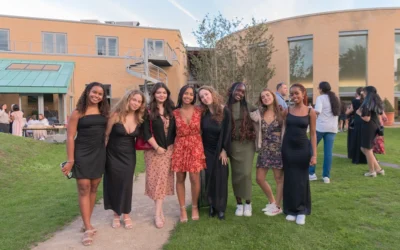How to become a Writer

We tend to think of a writer as someone who writes books, probably fiction books that tell a story. Given that many children grow up having storybooks read to them, and that the novel is such a large part of western literary culture, it is understandable to see the unconscious association of writing with this literary style. However, being a writer today can mean a huge variety of things, and writers are involved in a whole range of commercial and non-commercial endeavours.
Today, you can be a writer of scientific journals, encyclopaedias, blog posts, computer game scripts, children’s books, poetry, and commercial web content. Not to mention authors of novels. There really is a wealth of opportunity to be creative as a writer in today’s world. Despite this, being a writer can be tough and making a living from this notoriously changeable career can be challenging.
Some of the highest paid writers are those who work on television scripts, and a few lucky people might even be employed full time by companies such as the BBC. However this sort of work is increasingly contractual and most writers are self-employed, relying on contacts and word of mouth to secure the next job. Similarly, novelists often start out writing in the evenings and at weekends whilst working a 9-5 job to pay the bills.
To be a successful writer you must be creative, ambitious, and perseverant. It takes patience, tenacity, and a great deal of networking to secure jobs in most areas, and the ultimate salary achieved can be low. That shouldn’t put you off though if writing is your passion and what you want to pursue. Now, in 2018, there are more ways than ever before to make a living out of it. And who knows, you could be the next J.K. Rowling…
Check out what a day in the life of a writer is like.
What subjects do you need to become a writer?
As most writers are self-employed, there are no limitations to what you can and cannot study. Ultimately you should study what most interests and engages you, and draw on your experiences in whatever area you choose to write what you want.
A good understanding of grammar will save you a lot of time editing, so having some background in English Language will undoubtedly prove useful. Many writers of fiction (be that a novel, television, or computer game scripts) will find English Literature also helpful as a tool to greater understand structural and narrative techniques that can be used to perfect your work and make it stand out from the crowd.
Learn more about our Creative Writing Summer School for high school students.
How do I become a writer?
There is no one path to becoming a writer and you can start writing at any point in your life, from whilst still at school to well into retirement. Unlike many other jobs, there are no formal training programmes for writers, and even university courses in Creative Writing, while they do exist, are relatively uncommon.
Many writers take degrees in English Literature in order to explore as much creative writing from the past as possible whilst also developing their own writing skills in their essays, but it is important to remember that the focus of this degree is not your own creative writing. In fact, any humanities subject at degree level can be hugely beneficial to improving your writing style and broadening your vocabulary.
Being a writer generally involves being self-employed, so to begin with jobs will not come to you; you will have to go looking for them. It’s therefore a good idea to build and maintain a large network of contacts in the field, including agents, publishers, and other writers, all of whom may be able to send work your way at some stage. Once you’ve built up a good network, you’ll begin to become known in writing circles and jobs (and crucially salaries) will start flooding in.
Take a look at a day in the life of web-writer Nicole Dieker. She has said on Twitter that she can earn up to $1,500 a week writing content for web magazines and blogs! So clearly once you’re well known and people like what you do, writing can be quite lucrative – it’s important to remember though that this doesn’t happen overnight, and takes a huge amount of hard work and dedication!
The beauty of the internet is that you no longer need to even look for publishers for your work. Instead, you can self-publish. Setting up your own website, blog, and social media channels can give presence to you and your work without having to rely on other people, allowing for much greater flexibility, and often creativity, than a few years ago.
It is sometimes said that being a successful writer is all down to luck, to being in the right place at the right time, meeting the right people, but like many things in life, there is an awful lot that you can do to make your own luck. Self-publicising and networking can go a long way to getting known in the right circles, and being a perfectionist with your work, yet also not letting that limit your creative output, gives you the best chance of creating great work and getting recognised for it.
Find out what it’s like to study English in University by joining one of Oxford Scholastica’s Summer School programs.

What books can I read to help me become a writer?
Harper Lee
(2010: Arrow)
Jane Austen
(1992: Wordsworth)
George Orwell
(2013: Penguin Classics)
Mary Shelley
(2010: Collins)
Looking to take part in an Oxford summer course?
Recommended articles
Demystifying the UK University Application Process for Educators
The UCAS applications process for UK universities can appear daunting for students and teachers alike. With that said, educators play an important role in students’ success with their university applications. As such, it is paramount that educators understand the UK...
How to Secure Strong References for Your UCAS Applications
References are a crucial component of your UCAS application, offering a holistic view of your potential as an applicant. Your application will ask for references who can testify to your potential as a student and what you have to offer the university or college...
A Day in the Life of a History Student
It’s been over three years since I first sent my UCAS application off to Oxford University, meeting the early submission deadline by a slither and breathing a sigh of relief. Now, as a third-year History finalist on the cusp of exams, I can safely say that these...


